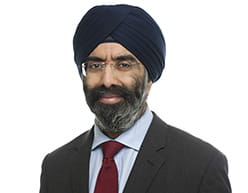On 9 April 2025, Vijya Mallya, a well-known Indian businessman and former member of the Parliament of India, has lost an appeal against his English bankruptcy order in respect of an Indian Court judgement of over £1billion. The Petitioners/Respondents consisted of various prominent Indian Banks including the State Bank of India.
Bankruptcy petition
Dr Mallya was the co-founder and chairman of Kingfisher Airlines Limited (Kingfisher). Dr Mallya also controlled a large group of companies in India known as the United Breweries Group, which Kingfisher was a part of.
Dr Mallya guaranteed Kingfisher's debts under a guarantee which did not afford any express proprietary security for his liabilities and disclaimed the creation of security. In due course, the principal debt was called in by the lenders, as was the guarantee. The lending banks obtained a judgment from the Debts Recovery Tribunal in India in the sum of circa £1.2bn (the DRT Judgment). The DRT Judgment was registered in England (in view of Dr Mallya moving to England from India 2016), leading to the presentation of the bankruptcy petition against Dr Mallya in 2018.
Submissions by the parties
Dr Mallya challenged that the banks had adequate security for the bankruptcy debt and there was no reference to that security in the petition as required under the Insolvency Act 1986 [1]. The banks did not accept they had security; however, in a judgment handed down in April 2020, Chief Insolvency and Companies Court Judge Briggs (Chief ICC Judge Briggs) held that the banks were secured creditors due to an estoppel arising out of the DRT Judgment, rendering the bankruptcy petition partially defective under Section 269 of the Insolvency Act 1986.
At a separate hearing in April 2021, Chief ICC Judge Briggs permitted the banks to amend the petition to read as follows: "The Petitioners having the right to enforce any security held are willing, in the event of a bankruptcy order being made, to give up any such security for the benefit of all the bankrupt's creditors". [2] Dr Mallya sought to appeal this finding on the basis that it was improper to amend to include such a waiver because public policy prevented such a waiver.
Following the amended petition from the banks, Chief ICC Judge Briggs made a bankruptcy order against Dr Mallya on 26 July 2021. [3]
Appeal Judgment
The appeal outlined concerned the security status of the debts; the proposed amendment of the petition; and the eventual bankruptcy order itself. Sir Anthony Mann's findings as regards the appeal issues were as follows [4]:
- Sir Anthony Mann held there was no security [5]. Chief ICC Judge Briggs had properly allowed the banks to amend the petition to include a waiver of any alleged security. The Judge considered that an appeal on this point has no real prospect of success and refused permission to appeal.
- The bankruptcy order made by Chief ICC Judge Briggs was valid: the conditions on recovered assets did not discharge the debt, and Dr Mallya's challenge to interest rates lacked merit. Sir Anthony Mann held that Chief ICC Judge Briggs was entitled to take the view that he took in relation to the interest rate challenge, both as to its lack of merit and as to the difficulty it faced when set against the fact that there was a judgment debt. [6]
Sir Anthony Mann's conclusion was "The bottom line in relation to this is that the bankruptcy order stands." [7]
Comments
Dr Mallya is reportedly making an annulment application [8], which is due to be heard in October 2025. An annulment order, if successful, will restore Dr Mallya to his pre-bankruptcy position, as if the order had never been made. The grounds for making an annulment order are:
i. The bankruptcy order should not have been made in the first place (for instance, due to errors in the bankruptcy process or disputes surrounding the debt); or
ii. The bankruptcy debts and expenses have been paid or secured.
If Dr Mallya is unsuccessful in annulling his bankruptcy order, his legal interest in all of his assets will continue to vest in the Trustee in Bankruptcy, who will continue realising the assets for the benefit of Dr Mallya's creditors. The Trustee in Bankruptcy has wide ranging powers to conduct investigations in relation to Dr Mallya's assets [9], including looking into any offshore assets. Hiding assets constitutes a criminal offence, which can result in a prison sentence.
In addition, Dr Mallya also facing charges of fraud and money laundering in India and is subject to a pending extradition application.
What the Mallya case shows is that whilst the England remains a popular destination for UNWs from India and elsewhere, the reciprocal enforcements and recognition agreements in relation to foreign judgements means that it is far from being a safe haven.
As a result, this recent judgment clearly does not constitute an end to Dr Mallya's legal troubles.
[1] Section 269 Insolvency Act 1986 and Rule 10.9
[2] [2021] EWHC 1312 (Ch) [Paragraph 100]
[3] [2021] EWHC 2260 (Ch)
[4] [2025] EWHC 858 (Ch)
[5] [2025] EWHC 858 (Ch) [Paragraph 156]
[6] [2025] EWHC 858 (Ch) [Paragraph 166]
[8] [2025] EWHC 858 (Ch) [Paragraph 170]
[8] Section 282 Insolvency Act 1986
[9] Section 289 Insolvency Act 1986

